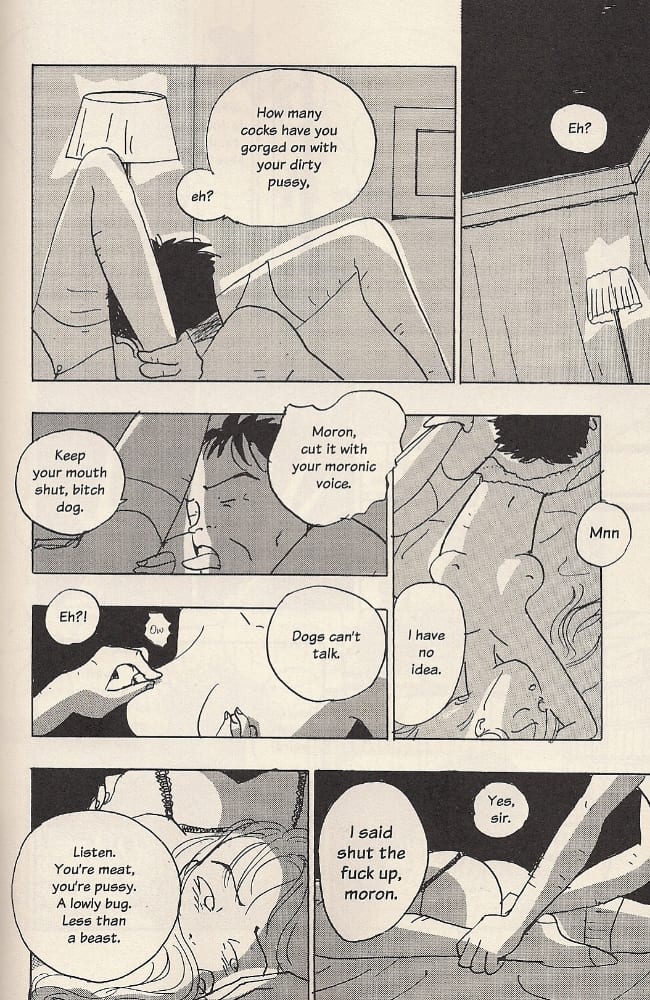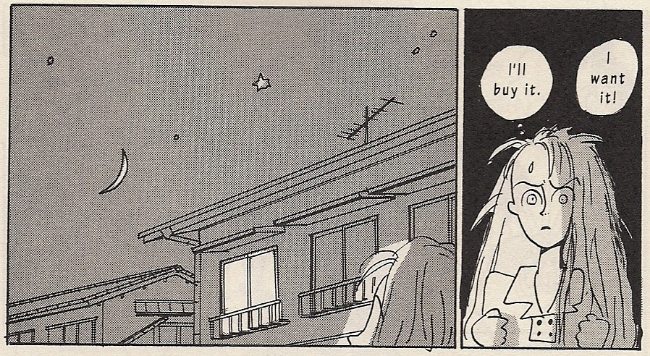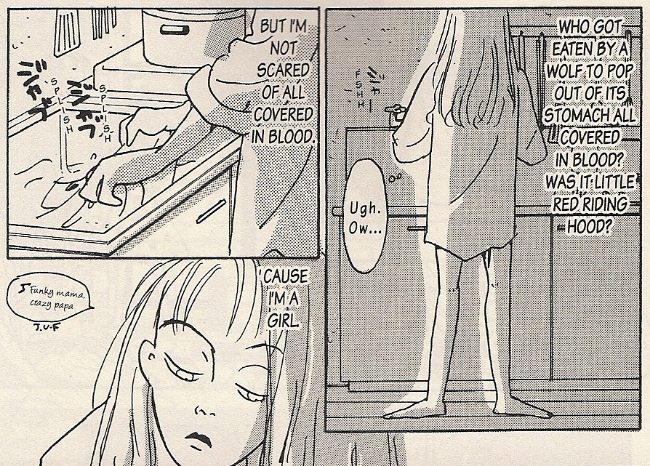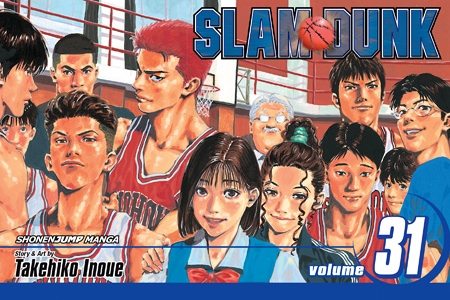What you are seeing above is what the marketers used to term "provocative," back when they wanted material that might be mistaken for smut to be known as something else, while also retaining the suggestion that it was, in reality, smut - an element of plausible deniability was deemed necessary, at that time, to tantalize the respectable public's appetite, even for works that genuinely had more on their mind than blunt force arousal. It was capitalism as an elaborate courting ritual, suitable for Victorians of the day.
What you are *also* seeing is a transaction, and perhaps a luxurious sneer. I don't mean the author holding forth on "[m]an ass" - it's the episode as a whole. The sickening, misogynistic man revealed as definitely the best fuck among the heroine's clientele, and possibly the story as a whole. It is not exactly a statement on the pleasure of degradation; rather, the woman's orgasm is connected, I will suggest, to the excellent tip left by the offending john. A few panels later, the man is on television, preaching against cruelty to animals - the heroine is in philosophical agreement. And then she wallet of the man, skinned off the hide of a crocodile, and she laughs. They are both animals, after all, with appetites to satisfy, and the whole idea of hating women - fuck that.
That man got her paid, and that is all the fuck that matters.
Is Kyoko Okazaki buying any of this? We are told by the kinder marketing of fine manga that pink, released in English just last week by Vertical, is the author's representative work. It was first published in 1989, when Okazaki was 26 years old, and it feels 'young' in a way that few comics of this length from today's young artists do - it is ambitious, reckless, ambiguous, not a little snotty, and determinedly mainstream in posture, if not attitude. It's a romance comic -- unabashedly so -- tracking the life of twenty-something Yumi, whose day job as an office lady (that classic 'no future' women's occupation of Bubble Economy Japan) cannot satisfy her hunger, so she moonlights as a prostitute.
And by "hunger," I mean she keeps a crocodile stashed away in her apartment, to which she feeds pink flowers and the occasional luckless guy. In the overweening, unsteady manner of a writer with intentions exceeding her reach by a bit, Croc is both a literal presence in the story and a metaphor for capitalism itself, which Okazaki decrees in an afterword to be "a tough, severe, scary and cruel monster," just like love. "All work is prostitution," she states, quoting Jean-Luc Godard, and indeed it becomes impossible not to think of the nouvelle vague legend's 2 or 3 Things I Know About Her over the course of the story: released in 1967, the essay film concerned a housewife/prostitute in Paris, and formed something of an unofficial trilogy with La Chinoise and Week End, prefiguring Godard's move into explicit polemics with the Dziga Vertov Group from out of the heat of '68.
But one suspects Okazaki is not so interested in these later films. The Godard of '67 was still a master at combining popular instincts with incendiary concerns, and it's from that platform which this comic pivots. It's a sunny sort of work, most of this pink - jobs are jobs, with some more honest than others. Yumi is contrasted with two key figures. She has a wicked stepmother (any similarities to certain Disney Princess movies are fully intentional), who embodies a more classical, socially acceptable approach to prostitution: fortune-hunting men under the guise of respecting a woman's place as wife, while keeping lovers on the side. And one of the lovers is a young novelist, hardly more than a boy, who falls in with a tickled Yumi and suffers a breakdown of all his artistic pretensions at the hands of the heroine and her Spunky Little Sister (TM) - nobody wants to read "literary" shit, and if you're writing with words a 12-year old can't understand, face it: you're just jacking off.
I'm tempted to call this "punk," because it's brandishing a certain anti-intellectual front as a means of rude, visceral appeal, and it's very eager to offend. But maybe it's more new wave en anglais: Okazaki wouldn't have her characters caught dead in anything but stylish, brand-name dress, and she is hardly interested in DIY ethos. There are many connections to make between pink and the only other book by the artist available in English, the brazen, Żuławskian Helter Skelter -- together, they arguably bookend the artist's 'mature' period, which only lasted seven years before Okazaki was struck by a vehicle, leaving her in varying states of infirmity for the remainder of her life thus far -- but I like Tom Spurgeon's observation (in an otherwise laudatory summary) that "there's not an idea in there I haven't encountered elsewhere," because that's exactly true for pink as well, and I'd half-expect the author to nod vigorously in agreement. After all, isn't there a sequence in here where the young novelist becomes a smash success by literally cutting out bits of earlier novels and pasting them together?
In candor, it's sometimes hard to tell where Okazaki stands on all this, so hip is her countenance. Do you remember hipsters? They were like terrorists and locusts combined, only worse, and the antagonists of every third piece of media or social criticism written in 2008. And like Jesuits in a Jack T. Chick comic, they could strike again at any moment - yet I feel some sympathy. pink, it is often said, was a landmark book in the maturation of Japanese comics aimed at girls - suddenly, it was plain that a reliable audience of adult (albeit young) women were ready to support a mainstream work aimed right at them, and by god I can imagine feeling so cool reading this comic.
Here's another Godard quote: "...humane people don't start revolutions. They start libraries." So what of a revolution in the library?
I think Kyoko Okazaki is vicious in style -- influential too, as the comparatively restrained quality of her visuals at this early stage can be tracked pretty cleanly down to later superstars like Ai Yazawa or ex-assistant Moyoko Anno -- but she is not inhumane.
Let's get back to that crocodile. I personally see Croc as less love or capitalism than autonomy, which is the very crux of the book. pink may seem strangely thrilled with the idea of buying shit for a book that's arguably a critique of capitalism, but that's because Okazaki is keenly aware of the aspirational character of conspicuous consumption. If we're throwing around musical comparisons, she's definitely not Lorde - to be monied, for a woman, under this artist's calculation, is to be free, for a short time, from the awful confinement of a society that dictates your every move. This is Yumi's superiority to her stepmother, but also her Achilles' heel - because what happens when your autonomy becomes little more than an empty valise for a futile dream of skipping town?
Okazaki closes out pink with a precipitous dive into sheer melodrama: so unsubtle, so out of the blue -- it involves a character being literally *pursued* by the prurient hypocrisy of the Japanese media -- that it initially registers as two middle fingers (excuse the American gesture) raised in the caring reader's face. But really, it's the only appropriate way for a book like this to end, because pinning all your hopes on wealth fails to recognize the element of chance to material success - the fact that labor doesn't necessarily comport with reward, and, in fact, if we are to reward this artist with some degree of precognition, that Economic Bubbles are liable to one day pop, and then what do you have? The author herself compares Yumi to Zelda Fitzgerald in her afterword, but adds a question mark.
I, instead, will retain an '80s theme, and elect no less than Tony Montana as her stand-in - blasted in the back by metaphorical buckshot she couldn't see coming. This is not a meaningful political prescription; it's a popular frolic that ends in despair. The world ain't yours, girls, but what are you gonna do?
***
PLEASE NOTE: What follows is not a series of capsule reviews but an annotated selection of items listed by Diamond Comic Distributors for release to comic book retailers in North America on the particular Wednesday identified in the column title above. Be aware that some of these comics may be published by Fantagraphics Books, the entity which also administers the posting of this column. Not every listed item will necessarily arrive at every comic book retailer, in that some items may be delayed and ordered quantities will vary. I have in all likelihood not read any of the comics listed below, in that they are not yet released as of the writing of this column, nor will I necessarily read or purchase every item identified; THIS WEEK IN COMICS! reflects only what I find to be potentially interesting.
***
SPOTLIGHT PICKS!
Black is the Color: Would it be taking the music theme way too far to declare this Julia Gfrörer's major label debut? Regardless, the artist has been putting together excellent amalgamations of sex and horror for a while now, including the first iteration of this seafaring tale about mermaids and certain death. Now Fantagraphics brings a 72-page print edition at 6" x 9" inches, perfect for your chilly repast. Preview; $12.99.
Slam Dunk Vol. 31 (of 31): Yes, all things must end, and so fate too comes for Takehiko Inoue's 1990s phenomena, a leading serial in a magazine with a circulation of nearly six million per week at the time, which supposedly helped popularize the sport of basketball in the nation of Japan. It's also supremely compelling entertainment, and big ups to Viz for sticking with it all the way to the end - sports manga has crashed many times before, but none of 'em looked like this; $9.99.
--
PLUS!
Brooklyn Quesadillas: Eurocomics! Yes! This is a release from earlier this year by French-born, NYC-based artist Antony Huchette, which is now seeing an English-language edition from Conundrum Press. It follows "a new father having a mid-life crisis as he navigates the surreal streetscapes of Brooklyn, trying to produce a tv show hosted by a coffeepot, and is then kidnapped by forgotten sitcom stars from the eighties who live on a 'fantasy' island and want him to revive their careers," per the publisher. Fun-looking art at 6.5" x 9.5", for 72 pages. French samples, English pics; $15.00.
The Encyclopedia of Early Earth: And then there's the new mainstream comics, like from Little, Brown, which is releasing the debut book by UK-based Isabel Greenberg, a contributor to various Nobrow projects, the Solipsistic Pop anthology and The Guardian newspaper (which enthusiastically reviewed this present volume). It appears to be a series of fables from before history, set in an icy climate, and rendered in a style that evokes a joinder of Kate Beaton and David B., if my rudimentary glance at preview images is any help. Preview; $23.00.
Couch Tag: Another thing Tom Spurgeon did with Kyoko Okazaki was to roughly analogize her visual sense circa Helter Skelter to that of zine, minicomic and weekly strip veteran Jesse Reklaw, who, as it happens, is now seeing his first-ever longform (176-page) original book released by Fantagraphics. "[A] series of comic novellas that together comprise a thoughtful, sometimes dark and often hilarious memoir about childhood, family, death, mental illness, sex and drug use, the entire book is told through cleverly inviting conceits like cat histories and card games." Call it your hardcover Fanta release of work by an alt cartoonist of 1990s origin #1 for the week. Samples; $26.99.
Artists Authors Thinkers Directors: And #2 - a 112-page compilation of online sketches by Paul Hornschemeier, comprised of 100 images of creative folk with whom he is taken; annotations included. Samples; $19.99.
Blake & Mortimer Vol. 16: The Secret of the Swordfish Part 2 (of 3): Being this week's most interesting release from Cinebook, a publisher which, despite its faults (say, a tendency to remove nudity from existing works) (and make no mistake, I DO consider those faults), remains an interesting presence on which to keep tabs, because they'll sometimes release oooold-school Belgian comics in English, like this 1953 adventure piece by Edgar P. Jacobs, as revised (I'll presume, given the three-album split) in 1984 - disregard the vol. 16, that's just Cinebook's order of release. An 8.5" x 11.3" softcover, 64 pages in length. Preview; $15.95.
Hellboy in Hell #5: Just letting you know this is happening on Wednesday - a new comic written and drawn by Mike Mignola. It looks like this; $2.99.
The Amazing Spider-Man #700.1: And here! Here is a new comic drawn by Klaus Janson! Written by novelist David Morrell (he of First Blood), this was supposed to front a five-issue weekly miniseries two months ago, but it seems Marvel has concluded through marketing divination that the whole thing should actually be a five-chapter (i.e. 700.1, 700.2, 700.3, etc.) offshoot of a more recognizable title. Note that this is an anthology-type project, so different creative teams will be involved at different points. Preview; $3.99.
Rover Red Charlie #1 (of 6): For a couple weeks last year the biggest thing among cool kid gamers was a PlayStation 3 release called Tokyo Jungle, where you control a wide variety of animals (some of them humorously fluffy and pampered) on missions of survival in an urban zone where all of humanity has mysteriously vanished. Now, writer Garth Ennis presents his characteristic take on a similar concept -- I'd cite to the 2000 AD tradition of doing homegrown spins on popular entertainment, but it might just be a total coincidence, who knows -- in which a plague wipes out humanity and three dogs are left to fend for themselves. Published by Avatar, and painted by Michael Dipsascale; $3.99.
Captain Easy, Soldier of Fortune: The Complete Sunday Newspaper Strips Vol. 4 (of 4) (1941-1943): The high-quality strip art reprint effort of 12/4 for sure, as Fantagraphics presents 144 more pages of vintage adventure at a tall 10.5" x 14.75", bringing it right up to the point where the keys were officially tossed over to Leslie Turner, as creator Roy Crane departed the Newspaper Enterprise Association syndicate to create Buz Sawyer at King Features. Preview; $49.99.
CBLDF Presents Manga: Introduction, Challenges, and Best Practices: *Lots* of books-on-comics of note this week, starting with Dark Horse's release of a Comic Book Legal Defense Fund production, also available through the CBLDF website. Edited by Melinda Beasi, the book promises 200 pages' worth of straight-talking info on what Japanese comics are, and how common objections to their content can be addressed. With contributions from Katherine Dacey, Shaenon Garrity, Sean Gaffney, Ed Chavez, Erica Friedman and Robin Brenner, I suspect there will be appeal beyond parties stocking such books for sale; $15.99.
Magic Words: The Extraordinary Life of Alan Moore: If you're like me, you probably have an 'Alan Moore studies' section of your personal archives (which is what the former producers of Hoarders are required to call it, per the terms of our settlement), and you've probably seen several instances of the terms "Magic" and "Extraordinary" - indeed, you almost certainly own a copy of Lance Parkin's "Pocket Essential" volume on Moore from a little over a decade ago. Now all of these ingredients combine into what I understand to be a formal biography of the Magus, who contributes his own pull quote to signify approval with the results (though apparently his direct participation was limited to addressing aspects of the completed draft for quotation). From Aurum Press, 432 pages; $29.95.
Comic Book Creator #3: Oh god, I actually think I am definitely up for a 30+ page creator interview on the making and legacy of Batman: Odyssey, a notoriously bizarre Neal Adams project from a little ways back - and that's what TwoMorrows is promising in this latest issue of their newest glossy color magazine. Also among the 84 pages are a small chat with Sean Howe (of Marvel Comics: The Untold Story) and the start of a Mark Waid career retrospective. Samples; $8.95.
The Comics Journal Library Vol. 8: The EC Artists Part 1 of 2: And finally -- I mean, I don't do the Conflict of Interest Reservoir anymore, but I still think something as close to the vest as this demands special markings way down bottom -- this very organ presents 240 pages' worth of chit-chat with all your favorite pre-Code superstars, including Will Elder, William Gaines, Al Feldstein, Johnny Craig, Frank Frazetta, Joe Kubert, Harvey Kurtzman, George Evans, Al Jaffee and John Severin. Introduction by former Heavy Metal editor Ted White. It's 10" x 12", so slightly smaller than prior artist-focused entries in the Library series, of which this is the first release in seven years (and not the last, if the subtitle holds true). Preview; $28.99.














